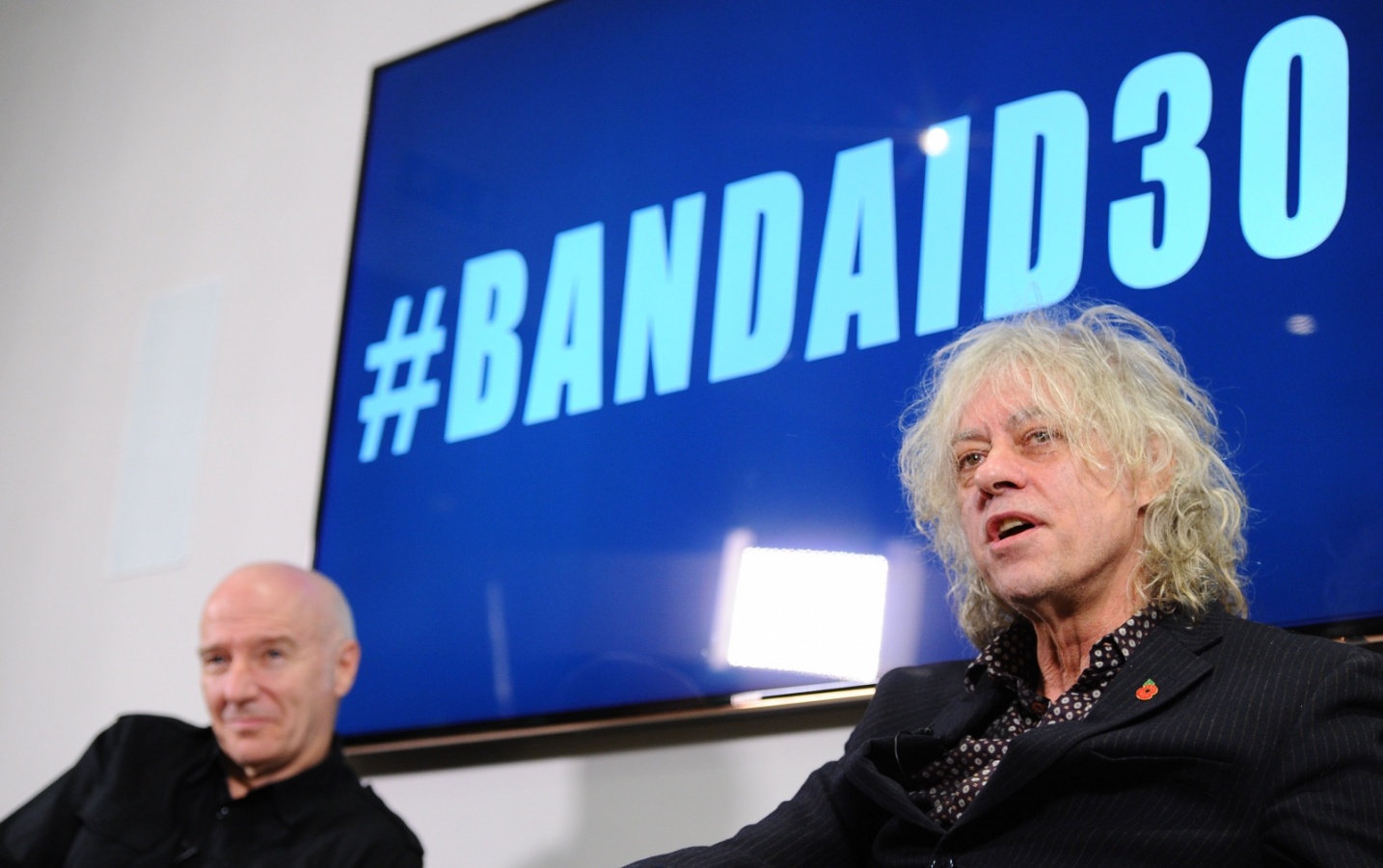Geldof’s brainchild is no longer relevant in trying to solve the Ebola crisis in Africa.
I recall performing the Band Aid tune “Do They Know It’s Christmas?” in the 4th grade, for one of those Christmas concerts meant to impress parents. Every class participated, but my homeroom teacher, I’ll call her an ‘Oxfam type’, was vocally critical of the song. I didn’t really understand why. This is because at the time, my worldview represented that of the 200,000+ people who have downloaded Band Aid 30 since its release: totally oblivious to the current state of Africa as a continent and charmed by the familiar artists I saw performing together.
Band Aid was formed in 1984 with good intentions. The song was seen as a united effort by British and Irish artists to combat hunger and poverty in Africa. It was a hit, as expected, and served as the effective start of celebrity activism. Band Aid raised millions of pounds for charity, revived Geldof’s career, and solved the hunger crisis in Ethiopia. Except it didn’t. After Band Aid, the artists involved went back to their self-indulgent lifestyles until it was time to pity Africa again a decade later. And a decade later. And now, 30 years on, in a fundraising effort for the Ebola crisis. Since then, the level of poverty in Ethiopia has decreased from 90 per cent of the population (39.5 million) to… 80 per cent. Also, Ethiopia’s population has tripled. The UK population only increased by 8 million in that same time frame, but the GDP of the UK has more than quadrupled. Other advanced, western countries show similar statistics.
I’m aware that it wasn’t Geldof’s intention to cure the entirety of Africa with one song, but perhaps he should have acted that way from the onset. The self-righteous attitude of Band Aid is appalling, and ultimately only serves as another example of the post-colonial West patting themselves on the back for another paltry effort to aid a continent crippled by inequality. “Raise a glass,” he writes, as if all we can do help the pathetic sufferers of Ebola is drink champagne. The entire concept of millionaires using the power of their angelic voices to feed millions of mouths was nauseating even in the 80s… how it has carried on through three decades only goes to show that our conceptualization of Africa as a place that is in desperate need of aid has not changed much either, even though Africa herself has changed considerably.
Another problem: Band Aid donates their proceeds to the African governments, instead of NGO’s. Ethiopia’s government is extremely corrupt, and money that enters the country this way often disappears into the pockets of government cronies. The same goes for Sudan, which was the subject of ‘Band Aid 20’. Band Aid’s attitude of throwing money at a problem from a safe distance is an antiquated, despicable model. Not as bad as colonialism, but not quite the remedy for it either. The condescending attitude Band Aid exudes towards Africa is toxic, and it is unfortunate that the young artists, who should be setting better examples for the kids who are buying this music and looking up to them, appear to be totally ignorant of the patronising nature of the song. Fortunately, the group has removed most of “Do They Know’s…” most offensive lyrics – among them “Where nothing ever grows, no rain or rivers flow,” a line that is insultingly inaccurate and only furthers the UK’s portrayal of Africa as a bunch of skin-and-bones children in a desert huddled around a white woman handing them clean water. These lyrics are replaced with gross generalizations about the country. Only a few nations in Africa currently have Ebola, and these countries aren’t exactly starving deserts, either.
Band Aid continues their condescending tone by assuming that all Africans need to know it’s Christmas. Christmas isn’t celebrated by the 45 per cent of Africans who are Muslim.
Christmas never solved poverty, and singing about Christmas isn’t going to inspire people to donate money or time to charities doing actual work to improve the economic condition of Africa’s poorest regions. It’s going to inspire people to buy the song, listen to it once, feel good about “caring”, and then spend 200 times the threshold income for being impoverished on meaningless gifts for their family.
Even after 30 years and many advances in human rights and global equality, it seems that Britain is still willing to embody the role of the paternal saviour of the poor, savage, undeveloped ‘third world’. Geldof would be better off quietly donating the absurd sums he collects from public speaking (£50,000+) and his multi-million pound real estate investments, and the world united would be better off without the cacophony of a bunch of indistinguishable, trending pop stars. For the humble reader, it comes down to this:
Do you value ignorance over cynicism?

